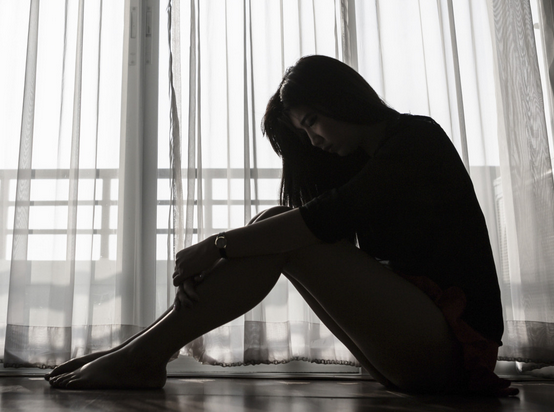If the period is 3 days late, then it does not necessarily mean that you are pregnant. Late period can occur to a variety of other causes such as stress, weight changes, medications, hormonal imbalance, PCOS, excessive exercising, illness, or even miscalculation.
A menstrual cycle is typically of 28 days. This may however not be the case in all women. Some women may experience menstrual cycles that last in the range between 18 and 35 days. A woman’s body gets prepared for pregnancy every month during the start of ovulation on the 14th day after the first period day. If the egg does not get fertilized during the period, then it disintegrates and women later get their period after 14 days.Thus periods are dependent on the ovulation day. However, women with irregular periods may not ovulate on the menstrual cycle’s 14th day. Rather, ovulation day may fall anywhere between the 8th and 20th day for them. You may consult a doctor if periods are late more than usual.
Causes of Period being 3 days late
The period may be 3 days late due to the following causes:
- Pregnancy: It is a major cause of period 3 days late. Sexually active women who experience late period should take a pregnancy test to rule it out.
- Weight gain: Being overweight can lead to irregular periods as increased weight can cause considerable fluctuations in the menstrual cycle. Late period problems can thus be avoided by maintaining a healthy body weight.
- Beginning of menstrual cycles:Normalization of menstrual cycles take a few years to occur. Hence, girls are most likely to experience irregular menstrual cycle patterns during the initial years after their first period.
- Weight loss: Irregular cycles are also common in underweight women as their nutrition-deficient bodies face problems in producing enough estrogen for ovulation process to begin. Women need to add more body fat so as to normalize their periods.
- Dancer/athlete professions: Dancers and endurance athletes generally undergo extreme and long periods of physical activities and exercises. This adversely affects the levels of estrogen, which in turn causes periods to be 3 days late or more. Periods can be regularized by taking breaks between 2 strenuous sessions of physical activity as well as eating a balanced and nutritious diet.
- Eating disorders: Women with bulimia, anorexia, or other eating disorders may also suffer from amenorrhea or delayed periods. In some cases, the periods may stop occurring. In most cases, irregular periods occur due to unhealthy and drastic loss of weight due to deficient intake of nutritional food.
- Vigorous exercising: The menstrual cycle can also be adversely impacted by intense exercising. In some cases, excessive exercising can cause late periods all through the year.
- Thyroid disorder: Women with a thyroid disorder that has not yet been diagnosed may also suffer from period 3 days late. Hyperthyroidism as well as hypothyroidism can both cause delayed or irregular periods. Often, thyroid issues may lead to weaker ovulation or anovulation, and/or a luteal stage that lasts for a very short time.
- Contraceptive pills: Studies have shown that some women experience menstrual cycle irregularities after using birth control pills. Hence, women should always consult a doctor before using any kind of oral contraceptive.
- PCOS/Polycystic Ovary Syndrome: This condition occurs due to female sex hormone imbalances and is marked by delayed periods and irregular ovulation. Doctors perform some diagnostic tests to determine the cause of PCOS. It can be cured with relevant therapy and then periods will no longer be 3 days late.
- Perimenopause: It refers to the transition period to menopause from a reproductive age. Periods are usually irregular during this stage, wherein frequency of periods as well as menstruation flow, both, may be affected.
- Hormonal issues: Emotional stress and varied physical illnesses can change the levels of hormones, which eventually result in periods 3 days late or more.
- Chronic ailments: Delayed or irregular periods are also common in women with chronic or acute diseases. Such menstrual cycle irregularities are however temporary; periods normalize after the underlying disease has been cured.
- Anxiety and stress: A stressful lifestyle filled with anxiety can sometimes cause periods that are 3 days late. This is because during such emotionally draining times hormonal changes that directly impact the hypothalamus occur in the body. It may be noted that hypothalamus plays a role in regulation of menstrual cycles.
- Medications: Intake of medicines like antipsychotics, antidepressants, and oral corticosteroids, etc., can cause late periods. The menstrual cycle also gets adversely affected during thyroid treatments and chemotherapy and other cancer treatments.
- Emotional disturbances: There are many emotionally upsetting events that humans experience during their lifetime, such as death of beloved, work problems, or domestic issues, etc., thereby causing ailments like restlessness, anxiety, and depression, etc. The well-being of women is especially affected by such emotional changes, eventually results in delayed periods.
- Travel: Travelling often comes with varied issues such as jet lag, schedule and routine changes, limited exercising, bad diets, and stress, etc. thereby causing periods to be 3 days late. Regularly exercising, sufficient sleep and rest, and eating healthy when travelling can help prevent late periods.
- Changes to the daily routine: Constant and continuous alterations to the daily schedule marked by changing sleeping patterns, eating habits, etc. can adversely the body clock in a woman. This may eventually result in delayed cycles. Starting out on a new job can also be considered as a change to the daily schedule. Periods will return to normalcy once the body gets adjusted to the new schedule.
- Breastfeeding: Several women experience irregular menstrual cycles, or late periods, or no periods at all when nursing their child or lactating. Periods will normalize when such women stop breastfeeding.
- Other causes: Periods may also be 3 days late due to numerous other causes such as underlying conditions like IBS/irritable bowel syndrome, tuberculosis, liver disease, or diabetes; health issues such as Asherman’s syndrome, pituitary tumor, primary ovarian insufficiency, and uterine scarring; consumption of excessive amounts of soy; and/or intake of illegal drugs.

